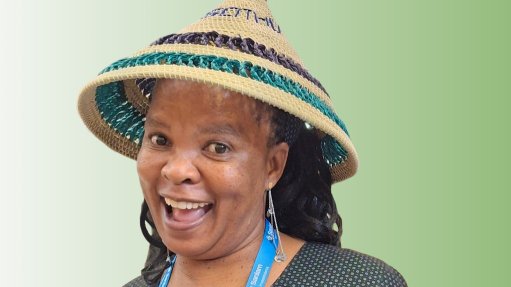York Timbers maintains earnings despite strikes, operational cost pressures
Despite a softening market, industrial action at the Komatiland Forests (KLF) operations, a fire and rising operational costs, forestry and forest products group York Timbers' headline earnings a share for the six months ended December 31, 2012, remained flat at 13c.
The company’s revenue rose 4.6% to R590.7-million for the six months, compared with R564.8-million in the six months ended December 2011, while its after-tax profit increased marginally to R43.5-million, compared with R43.67-million in the comparable prior period.
CEO Piet van Zyl told Engineering News Online that the company was still quantifying the financial impact of the significant cost pressures from escalations in labour, fuel and electricity costs during the reporting period.
“We also had two major events impacting on our operations. Firstly, a strike at KLF resulted in one of our mills being without timber for seven days and, secondly, there was the transport strike in the September period that also hit us hard – those two factors also had a major impact on our financial results,” he added.
The group’s earnings were positively impacted on by an R18.9-million increase in biological asset fair value adjustment compared with the previous year’s corresponding period; this was a direct consequence of the reduced harvesting of York’s own plantations.
This increase offset the marginal loss in operating profit to R66.7-million from R67.8-billion in the six months ended December 2011.
However, York estimated that the potential incremental operating profit for the period under review, should it have been able to source its full log requirement from own plantations, would have been about R22-million higher.
Meanwhile, processing plant efficiencies improved during the period and the combined lumber and plywood volumes produced increased by 6% against an increase in log intake of only 3% compared with the prior period. The company expected its planned capital investment to further improve processing margins and its cash generating ability.
York had received Development Facilitation Act (DFA) approval from the Mpumalanga DFA Tribunal for the intended developments at its Sabie site, which was aimed at improving fibre use, increasing efficiencies and product diversification.
Given York’s view that future log demand would exceed supply in the Southern African market and to ensure the optimal return for the group, the company strategically manages its plantation growth and harvesting, as opposed to purchasing third-party logs.
However, owing to the low maturity rate at many of its plantations, York purchased 30% of its total log requirement from third-party suppliers. This was a 45% increase over the comparable period.
“The maturity of our plantations is a key factor. At this stage, it is more beneficial to let the trees grow because of that young age class distribution. We do not get the optimum value out of a tree at younger age as you do at a mature age, so we currently buy more mature trees from the open market,” Van Zyl added.
As its plantations mature, the company expected a reduced reliance on third-party logs.
York’s net cash generated from operations amounted to R44.1-million. Despite significant expenditure on the purchase of logs from third parties during the period under review, cash generated of R10.1-million was up R8.4-million on the comparable prior year period.
“This was largely driven by the restructuring of our debt, which saw interest-bearing debt decrease by R34.4-million to R545-million and finance costs fall by R10.1-million for the period. Accordingly our debt to equity ratio declined to 25% from 28% previously,” Van Zyl said.
The average maturity period of York’s committed debt facilities after the Land Bank refinance is nine years with unused, committed borrowing facilities in excess of R210-million.
However, the company indicated that external log purchases impacted its forestry division’s margin negatively and needed to be offset by improved efficiencies in the processing division or lumber selling prices.
During the reporting period, York suffered fire damage to a limited area of its plantations and, as a result, the temporary unplanted (TUP) area increased by 700 ha, offsetting the growth that resulted from lower harvesting during the period.
“As the TUP areas are replanted to normalised levels, the future plantation asset growth, as taken into account in the discounted cashflow model, will increase the value of the asset,” the company noted.
York’s adjusted tangible net asset value, which represented the net asset value of the company after the removal of the goodwill and deferred taxation associated with the biological asset cash-generating unit, improved by 8% to 671c a share over the 2011 equivalent period.
OUTLOOK
Van Zyl indicated that the company was well placed to take advantage of expected growth in the informal or human settlements market once the low market confidence in the residential building and construction sectors improved in latter part of 2013 to 2014.
He added that, although government’s projected units to be constructed in the informal sector in 2013 fell by 28%, it projected 50% growth in these numbers in 2014 to 2015.
Article Enquiry
Email Article
Save Article
Feedback
To advertise email advertising@creamermedia.co.za or click here
Press Office
Announcements
What's On
Subscribe to improve your user experience...
Option 1 (equivalent of R125 a month):
Receive a weekly copy of Creamer Media's Engineering News & Mining Weekly magazine
(print copy for those in South Africa and e-magazine for those outside of South Africa)
Receive daily email newsletters
Access to full search results
Access archive of magazine back copies
Access to Projects in Progress
Access to ONE Research Report of your choice in PDF format
Option 2 (equivalent of R375 a month):
All benefits from Option 1
PLUS
Access to Creamer Media's Research Channel Africa for ALL Research Reports, in PDF format, on various industrial and mining sectors
including Electricity; Water; Energy Transition; Hydrogen; Roads, Rail and Ports; Coal; Gold; Platinum; Battery Metals; etc.
Already a subscriber?
Forgotten your password?
Receive weekly copy of Creamer Media's Engineering News & Mining Weekly magazine (print copy for those in South Africa and e-magazine for those outside of South Africa)
➕
Recieve daily email newsletters
➕
Access to full search results
➕
Access archive of magazine back copies
➕
Access to Projects in Progress
➕
Access to ONE Research Report of your choice in PDF format
RESEARCH CHANNEL AFRICA
R4500 (equivalent of R375 a month)
SUBSCRIBEAll benefits from Option 1
➕
Access to Creamer Media's Research Channel Africa for ALL Research Reports on various industrial and mining sectors, in PDF format, including on:
Electricity
➕
Water
➕
Energy Transition
➕
Hydrogen
➕
Roads, Rail and Ports
➕
Coal
➕
Gold
➕
Platinum
➕
Battery Metals
➕
etc.
Receive all benefits from Option 1 or Option 2 delivered to numerous people at your company
➕
Multiple User names and Passwords for simultaneous log-ins
➕
Intranet integration access to all in your organisation

















